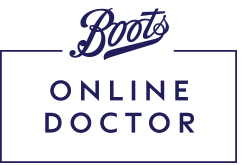Get the advice and treatment you need to help you quit smoking for good
FIND OUT MOREWe've got a range of nicotine replacement therapies which can help you to cut down or stop smoking
What is NRT?
The nicotine found in cigarettes is what makes smoking addictive and causes withdrawal symptoms, like cravings, headaches and irritability when you stop or reduce smoking. Nicotine replacement therapy (NRT) can help fight these symptoms by releasing low levels of nicotine into your body, without the carbon monoxide, tar and other chemicals found in cigarettes. NRT can be used for people who want to stop straightaway or those who want to gradually cut down smoking before stopping. Evidence suggests you can double, and sometimes even triple, your chances of stopping smoking by using NRT.
The different types of NRT
Nicotine replacement therapy comes in a number of different forms. Which treatment you choose can depend on things like whether you're a heavy or lighter smoker, as well as if you want to cut down on your smoking or stop completely. Your GP or pharmacist can help you decide which form of NRT to try if you're unsure.
If you prefer not to chew gum, you might want to use lozenges instead. Like gum, these need to be rested between the gum and cheek so the nicotine can enter the body through the mouth's lining. If you want a more discreet option than a lozenge, you could consider microtabs which dissolve when placed under the tongue.
If you miss the hand-to-mouth action of smoking, you might want to use inhalators, which are plastic cigarette-shaped devices. As they release nicotine faster than gum or patches, you might want to use these when you get a craving. If you need rapid and effective relief from cravings, you might want to use a nasal or mouth spray.
You could also get the advice and treatment you need to help you stop smoking for good with our online doctor service. Simply fill in a short questionnaire an one of our clinicians will assess whether the service is right for you.*
*Subject to avaliablility and clinician approval. Charges apply.





